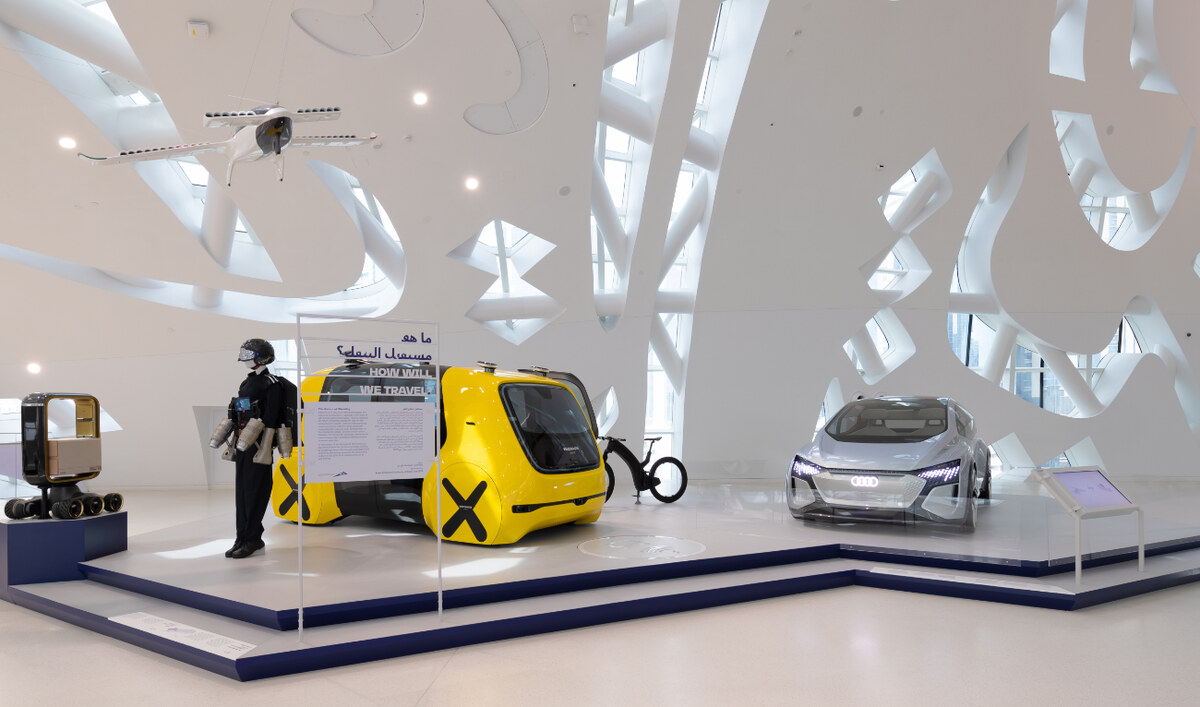DUBAI: One of the compensations of the lockdown has been the daily webinars organized by the consultancy Gulf Intelligence on the energy industry, and in particular the Sunday show.
Not only does it set the tone for the week in the midst of the most turbulent period in the history of oil markets, but it also brings together two of the leading commentators on global energy markets for 30 minutes of cerebral sparring on a subject that always provokes strong views, never more so than in crisis.
In the red corner of the forum, John Defterios, emerging markets editor at TV network CNN; in the blue corner, Christof Ruehl, former chief economist of BP and head of research at ADIA, the UAE’s premier sovereign wealth fund, now senior research scholar at the Columbia University Center on Global Energy Policy and a fellow at Harvard Kennedy School.
The subtle differences of opinion between the two on such crucial matters as crude storage, oil demand recovery and Texas rig counts are real, but not personal. “We know each other well,” Ruehl told Arab News.
Over the course of what the oil industry is calling “Black April” — when Ruehl and his family were in enforced stay in the UAE — the two had plenty to discuss.
“It certainly was exciting. It’s been a true roller coaster,” said Ruehl, outlining the events that have taken us to an unprecedented place in the energy business — the biggest ever destruction of global demand, followed by the biggest ever cuts by Saudi Arabia and Russia in the Opec+ alliance, and the ongoing downturn in the shale business that has knocked the US off its perch of global energy dominance.
Some analysts — especially in the US — saw it all as an orchestrated design by Opec+ to destroy American shale, but Ruehl does not agree. “If you think of design as a conspiracy theory, a plot by Saudi and Russia against the US, then no. But if you think of design as a pattern that was becoming more pronounced and visible over a period of time, then in many ways, yes,” he said.
BIO
BORN: Erlangen, Germany, 1958
EDUCATION: University of Bremen, Germany
CAREER:
- University of California Los Angeles, professor of economics
- European Bank for Reconstruction and Development
- World Bank, lead economist in Russia and Brazil
- BP, chief economist
- ADIA (UAE), global head of research
- Harvard Kennedy School, senior fellow
- Columbia University Center on Global Energy Policy, senior research scholar
The collapse in demand resulting from the pandemic lockdowns was what the economists call an “exogenous shock” accelerating pre-existing conditions in global oil markets. But he thinks that it is wrong to talk about “victors” in the oil price wars that collapsed crude prices worldwide and from which the industry is only now recovering.
“Everyone is dealing with a lower oil price. All was obliterated by the virus and the sudden collapse in demand — there are no winners here.The world will enter a period of lower oil prices, Saudi Arabia will enter a period of lower production,” he said.
Oil prices have pulled back from the bottom, having fallen through the floor on April 20 when the price of a barrel of West Texas Intermediate crude was trading at negative rates.
But there is a danger to that nascent recovery. “If prices shoot up too fast because you’ve been effective in cutting supply, you will get cheating in the Opec+ segment, and you’ll get shale and others coming back in the private segment,” he said.
High energy prices would also threaten the still-uncertain economic recovery after the lockdowns end, because “the majority of people on the planet are not oil producers, they are oil consumers,” and could also pose a risk for future investment in oil.
On the prospects for recovery, crucial both for oil prices and to prevent the world slipping into a 1930s-style Depression, Ruehl believes that we are still at the mercy of exogenous events. “Oil demand is hostage to the recovery, and the recovery is hostage to the pandemic,” he said, pointing out that most forecasters have taken a progressively pessimistic view on global growth as the lockdown continued.
Where oil prices go in that scenario is uncertain, but he is adamant that US shale, the dominant force in setting market levels for the past few years, is not “dead,” as some commentators have said. When WTI turned negative last month, it was an example of market forces working efficiently.
The demise of the old order isn’t just a change for the Middle East, but also for free-riding high-cost producers.
Christof Ruehl, Columbia University
“The US system is very flexible at closing companies down and having them taken over by others, but the assets are always there. The consolidation will leave the shale industry better organized than before, and better financed than before. That is still true despite the hit from the virus,” he said. Some shale would become profitable again at between $30 and $35 a barrel.
Other factors such as big outages by producers, or geopolitical events, have the capacity to cause oil prices to spike, but barring these “prices of $70 or $80 seem out of the question at the moment,” he said.
The carnage of the past few weeks will leave the industry permanently changed, not least in how it is governed, as the US, Saudi Arabia and Russia collaborated in an unprecedented way to halt the slide.
“Basically we had the three big producers sitting down behind closed doors and coming up with a package. Does that herald things to come?” he asked, raising the prospect of an Opec++ deal between the three producers.
On the question of US supremacy in the global energy industry, the new normal of the oil market is stark. “It wouldn’t leave the US much room to call themselves energy independent, much less dominant. The demise of the old order isn’t just a change for the Middle East, but also for the high-cost producers who were free-riding,” Ruehl said.
Can the Saudi-Russia pact on production cuts persist, given the very different pressure those two oil-dominated economies are under?
“When prices start rising again, we will see. The old world meant Saudi Arabia was able to cut output and recoup revenue from higher prices, but this got out of balance with the impact of shale. Saudi Arabia and Russia answered with Opec+, but that will not work when markets are shrinking,” Ruehl said.
Some pessimists believe the world will never again use 100 million barrels of oil a day, and that presents a unique challenge for Saudi Arabia as it strives to reduce its oil dependency.
“Nothing should distract from the fact that it is devilishly difficult to diversify a resource-dependent economy. There are very few success stories, and there are plenty of failures. Critics of Saudi Arabia should always be aware of that,” Ruehl said.
There are problems with how you assess progress away from energy dependence. “The IMF and others use non-oil GDP as an indicator. They say the oil worker, when he’s on his drilling rig, is part of oil-GDP, and when he goes back to his hotel is non-oil GDP. But to me it’s a bit of a fiction. You see how non-oil GDP goes up and down with the oil price all across the GCC,” he said.
Ruehl believes that the Kingdom needs to adapt and clarify the strategy in rapidly changing circumstances. The policy options are multiple, from picking non-oil sectors of the economy such as tourism, leisure and manufacturing for intense development, to the use of a central agency, such as the Public Investment Fund or other body, to aid development and even act as a “rainy day” fund to protect the economy from the ravages of the pandemic.
“It’s not really an emergency situation in Saudi Arabia because you have this enormous buffer of finances,” he said. But the Kingdom is at an inflection point, and needs a consistent macro-economic framework for policy making.
In the wake of the pandemic, Saudi Arabia has put in place financial packages to mitigate the effects of the economic disruption, but also taken measures to keep public finances in balance, such as tax rises and expenditure cuts.
“It could be a very bold policy move by saying that every crisis is an opportunity, and this crisis is so bad the Kingdom doesn’t want to waste the opportunity. Policy makers might be using the crisis as a way to push through changes in the labor market and government finances,” Ruehl said.
“Or the other way is to do what everybody else is doing — deploy counter-cyclical fiscal policy, keep employment protected, keep the economy protected, prevent the economy from shrinking. But then you are protecting the economic model that Vision 2030 is seeking to transform,” he said.
Which path to follow is a crucial choice for the Kingdom: “It is not for me or the IMF to say. It has to be done by people at the very center of it who have to make a very lonely decision,” Ruehl said.
































